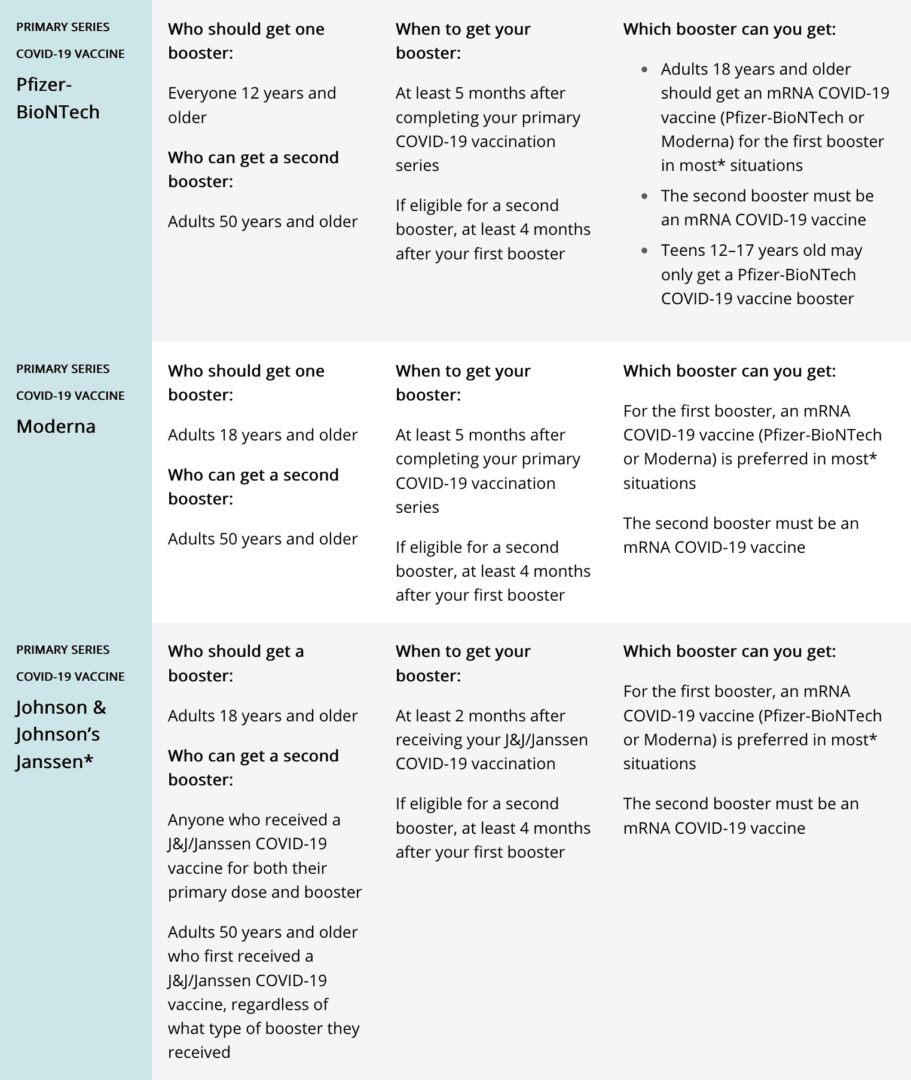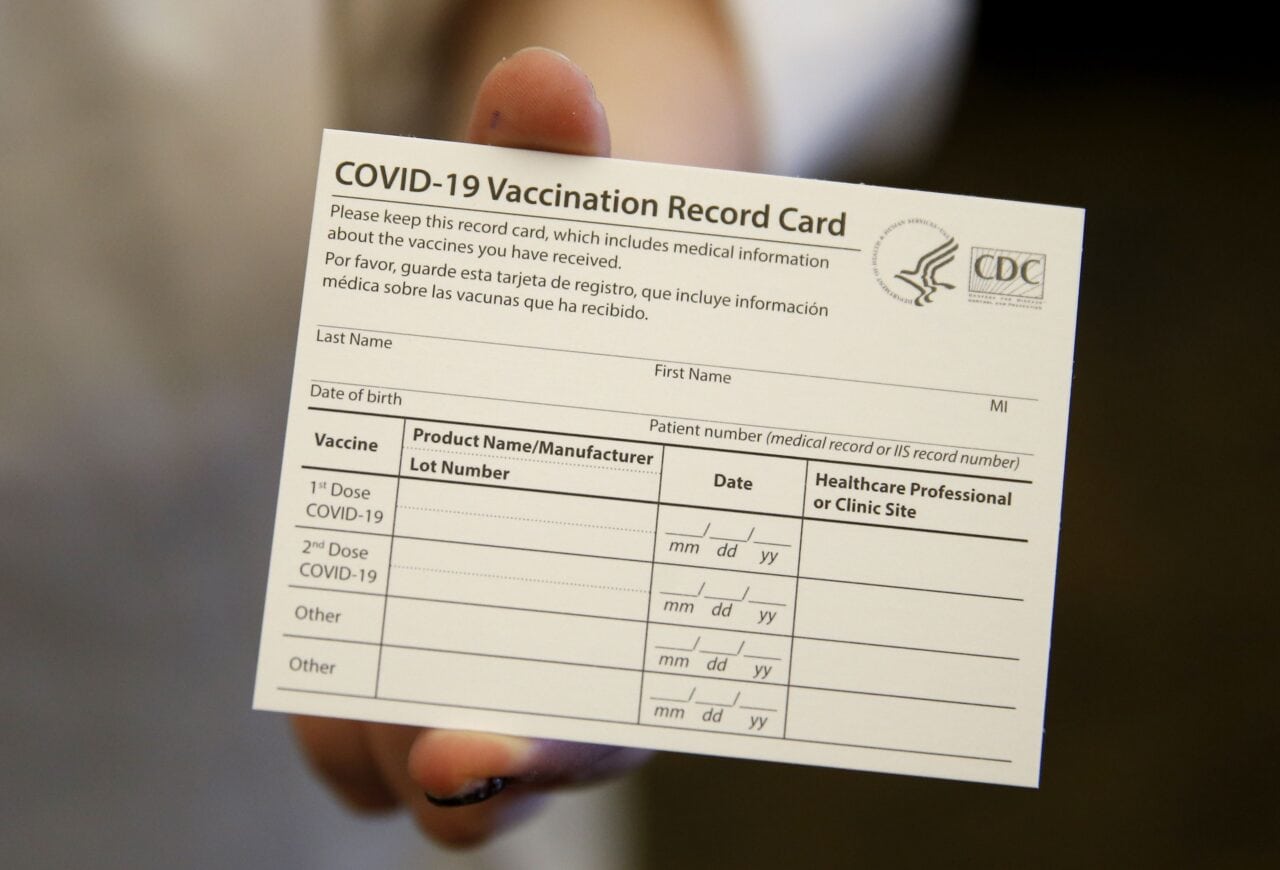If you've just moved to the United States, it's very likely that you've already had your first round of COVID shots in your home country before you moved. It's also very likely that booster shots will be part of our futures for some time to come (or even forever) so is it possible to get a booster shot if you've had your first round of shots overseas?
COVID has obviously become a big part of our lives in the past few years but it's looking like that's going to exist well into the future and getting a shot for COVID each year (or twice a year) will be the normal process, just like a flu shot.
Which vaccines are accepted as COVID-19 vaccines in the United States?
- Vaccines approved or authorized by the U.S. Food and Drug Administration (FDA), which currently include:
- Johnson & Johnson’s Janssen
- Moderna
- Pfizer-BioNTech
- Vaccines listed for emergency use by the World Health Organization (WHO), which currently include:
- Johnson & Johnson’s Janssen
- Moderna
- Pfizer-BioNTech
- AstraZeneca
- Covaxin
- Covishield
- BIBP/Sinopharm
- Sinovac
- Novavax/Covovax
If yours is not on this list, the CDC recommends that you start vaccination over with an approved or authorized vaccine. You should wait at least 28 days after your last dose before getting started.
Who can get a COVID-19 booster?
The first check that needs to be done is whether you have received the “full primary series” of doses, and that means either that you:
- Received one dose of a single-dose accepted COVID-19 vaccine
- Received two doses (or any combination) of a two-dose accepted COVID-19 vaccine
While the CDC doesn't recommend mixing the COVID-19 vaccines in the initial primary series, they understand sometimes it hasn't been possible to do anything else, so you are fine too.
If you haven't fulfilled this, then you should start with completing that, by matching vaccine to your existing one or getting an mRNA COVID-19 vaccine in the US.
If you have fulfilled the primary series, and your vaccine is on the list, then you're good to go getting boosters just like everyone else in the US, at least 5 months after the last dose.
Which COVID-19 booster are you able to get?
In short, there are a certain array of rules depending on which shot you've already received. For example if you've already received Moderna, you can choose which booster you can get the first time, but a second booster must be another mRNA vaccine (Moderna or otherwise).
There's a matrix on the CDC's website which shows exactly which vaccines you can get depending on which you've had in the past:

If yours isn't on there, then you should be free to choose but it is recommended that you go with the mRNA vaccines over the J&J vaccine at this stage.
How to prove you've had your vaccinations
If you're coming into the country from overseas, what you need to provide is evidence of your vaccinations from a Government body in your country, the country they were administered, and that contains your full name, your birth date, your passport number (where possible), and the vaccinations you've had, their lot numbers, and the dates they were administered.
If you've got something with all that information you should have no problem proving things to the US authorities responsible.
Most countries like Australia have a method for accessing your international vaccination certificate:
Use your International COVID-19 Vaccination Certificate to show proof of your COVID-19 vaccinations when you want to travel overseas.
You should always keep these documents with you while in the US because you will not be issued a replacement document detailing these overseas vaccinations. You will likely
How to get US proof of vaccinations
Once you have a booster shot, you should receive a COVID-19 Vaccination Record Card with the CDC's logo on it. This is your official document for your COVID vaccination and it's tremendously important that you keep this safe.
If you lose it, you should go back to whomever gave you the jab and they should be able to provide you with a replacement. This will only contain the booster shot information and is to be used in concert with your overseas vaccination documents.

Where can I find more information about this?
Each state in the United States does things their own way so in all likelihood you're going to want to search your state's name and “Health Department” to find the most accurate information for you. Here's a complete list of state health departments.
Overall though, the best resource for this information is the CDC in the United States and here for information about people who are vaccinated outside the United States from the CDC.












